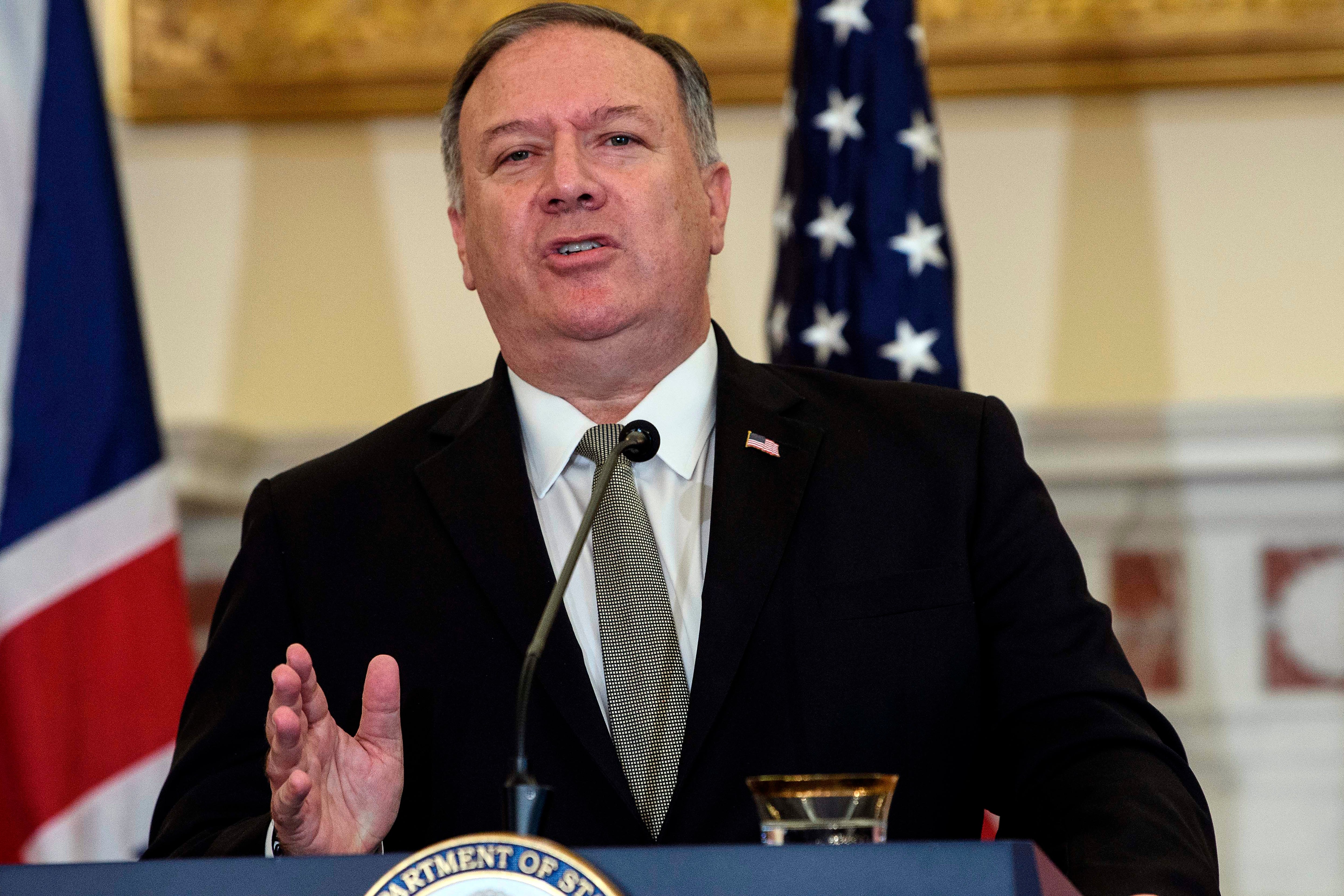Pompeo visits Guyana hoping to shore up support on Venezuela
U.S. Secretary of State Mike Pompeo has visited the small nation of Guyana looking to shore up support for Trump administration efforts to oust Venezuelan President Nicolás Maduro and build ties with the booming oil producer

U.S. Secretary of State Mike Pompeo visited the small nation of Guyana on Friday looking to shore up support for Trump administration efforts to oust Venezuelan President Nicolás Maduro and build ties with the booming oil producer.
During the brief visit, Pompeo and President Irfaan Ali signed agreements to strengthen U.S. investment and cooperation on energy and infrastructure while vowing to deepen cooperation on maritime security and drug trafficking interdiction.
Pompeo praised Ali’s support for the Lima Group, a regional body of U.S.-aligned nations that have pushed for a diplomatic solution to Venezuela’s political crisis.
Guyana's new president made some of his strongest remarks yet in regard to Venezuela.
“We support the need for free and fair elections in our hemisphere,” Ali said. “With urgency, we believe that democratic values and principles should be respected in Venezuela as well.”
The visit is the first by such a high-ranking U.S. official and highlights Guyana’s increasing strategic importance. The country shares a border with Venezuela and is a now major oil producer, making it an attractive ally for expanding U.S. political and economic influence in the region.
Pompeo’s trip comes on the heels of five months of political turmoil in Guyana following a contested presidential vote in March. Ali was sworn into office in August after a protracted legal battle, a Supreme Court-ordered recount and international pressure on incumbent David Granger to step down.
“The United States is ready to be your partner,” Pompeo said.
The stop in Guyana is part of a three-day visit to four nations — all of which surround Venezuela, where the bid by U.S.-backed opposition leader Juan Guaidó to topple Maduro stands on increasingly shaky ground. The Trump administration’s support of Guaidó has been cornerstone of U.S. policy in the region. And it is likely to be a focal point thousands of Latino voters in Florida, where Trump is in a close contest with Democratic nominee Joe Biden.
“It’s pretty conspicuous that Pompeo is visiting every neighboring country around Venezuela,” said Geoff Ramsey of the Washington Office on Latin America think tank. “The reality is we’re in an election campaign domestically, and this is a White House that sees Venezuela policy as inextricably linked to its electoral campaign in Florida.”
Caribbean nations near Venezuela have been divided over the standoff, with many keeping ties to Maduro’s government despite a mass exodus of Venezuelans to neighboring islands that has stressed traditionally close relations.
Suriname President Chan Santokhi, in a meeting with Pompeo on Thursday, reiterated that dialogue remains his preferred approach toward finding a resolution.
“We will contribute to the dialogue and the work with all likeminded partners to ensure that the democratic rights of all the Venezuelan people are enjoyed,” he said.
The issue also is a touchy topic in Guyana, where Granger as president had publicly complained about U.S. pressure to allow the Voice of America to set up a radio station on its territory and beam propaganda messages into Venezuela. Ahead of the visit, the Human Rights Association of Guyana expressed concern that the nation of 740,000 people could get caught in the middle of the dispute between Venezuela and the U.S.
“Aligning Guyana with those seeking regime change not only threatens Guyana’s legal negotiations over the border, but it would also be politically absurd,” the group said.
Venezuelans for decades have argued that two-thirds of Guyana’s territory should be theirs, contending that the gold-rich area west of the Essequibo River — along with the concordant maritime zone where Exxon’s oil find lies — was stolen from it by an 1899 agreement with Britain and its then colony.
The relatively poor nation stands to begin cashing in on its newfound oil wealth, with Exxon shipping the first tankers of Guyanese fuel this year. The offshore fields discovered in 2015 are estimated to contain more than 8 billion barrels, one of the world’s largest reserves. The revenue could generate $168 billion over the years, 120 times the country’s annual budget.
The sudden wealth has caught the attention of major international actors and spurred a race between the U.S. and China to solidify ties. A supporter of Maduro, China likely sees Guyana as a geographically strategic ally. The nation has expanded its influence in Latin America and Chinese companies are developing infrastructure projects in Guyana.
Pompeo extolled the benefits of U.S. economic partnerships Thursday in Suriname, bashing his Chinese counterparts as unreliable and predatory.
“We honor contracts,” he said. “We don’t engage in crony capitalism.”
Ramsey, the analyst, said the Trump administration has shown it is clearly interested in countering Chinese influences in the hemisphere and “presenting the United States as a more credible long-term partner for countries in Latin America.”
Bookmark popover
Removed from bookmarks